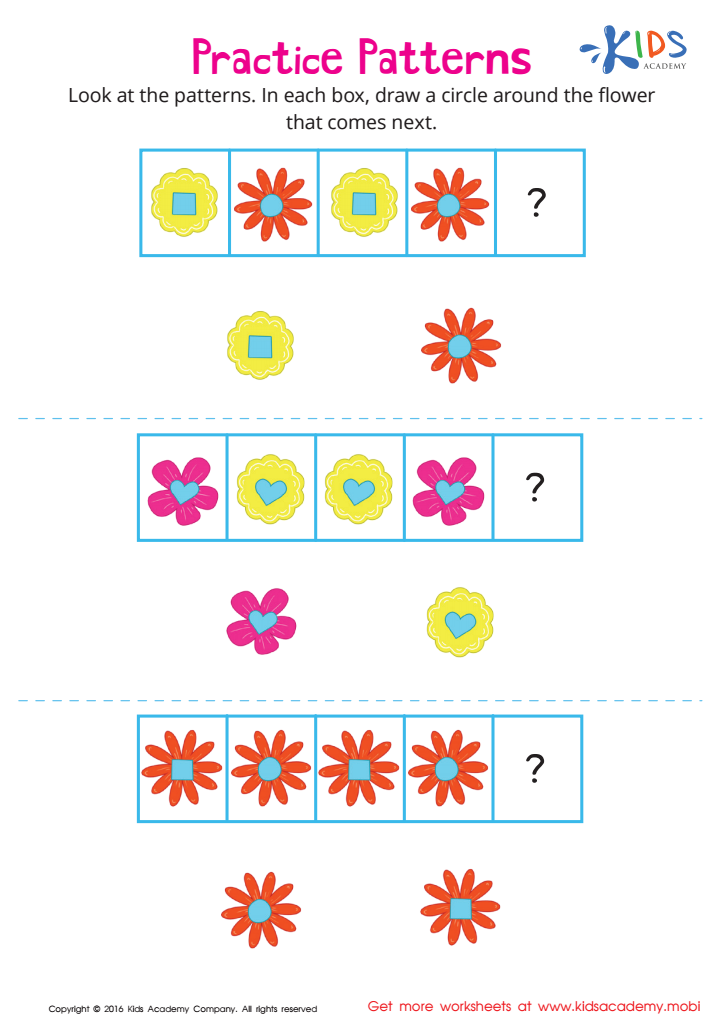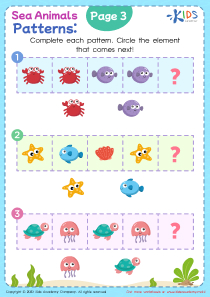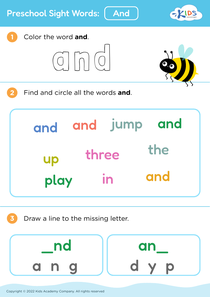Understand simple patterns.worksheets With Answers
6 filtered results
-
From - To
Discover an engaging way to help your young learners grasp the concept of simple patterns with our comprehensive worksheets, complete with answer keys. Tailored for preschool and early grade students, these resources focus on recognizing and creating patterns through fun activities. Each worksheet encourages critical thinking and develops essential mathematical skills in a playful manner. The answer section is designed to support educators and parents, making it easy to guide children and assess their understanding. Empower your students to investigate patterns and build a solid foundation in algebraic thinking! Access our printable worksheets today and make learning enjoyable!
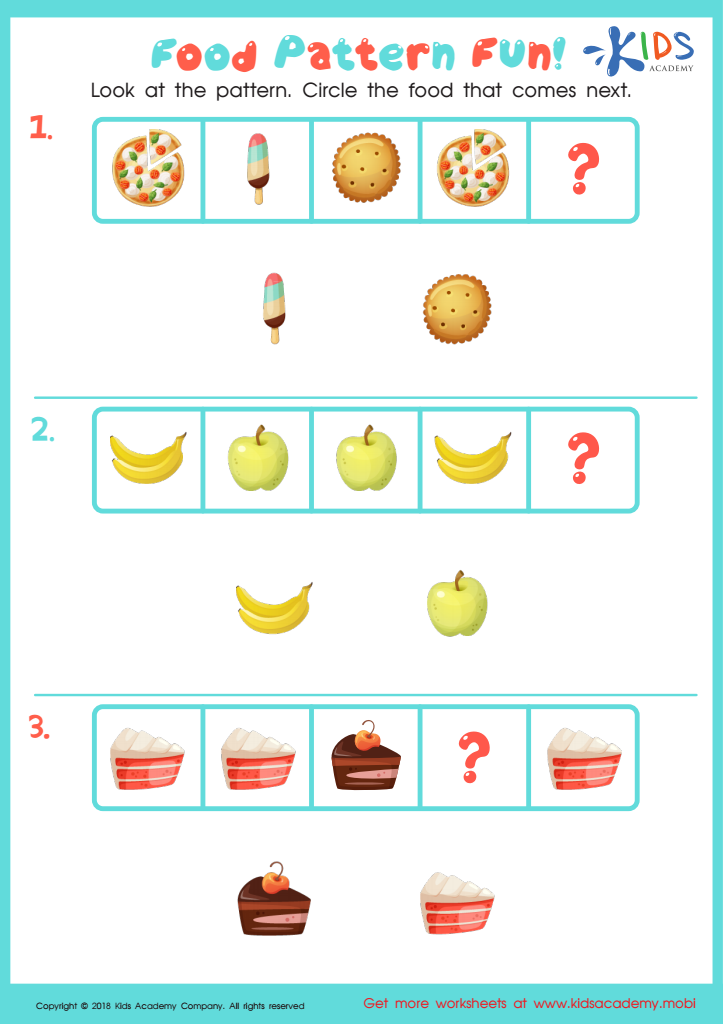

Food Pattern Fun Worksheet
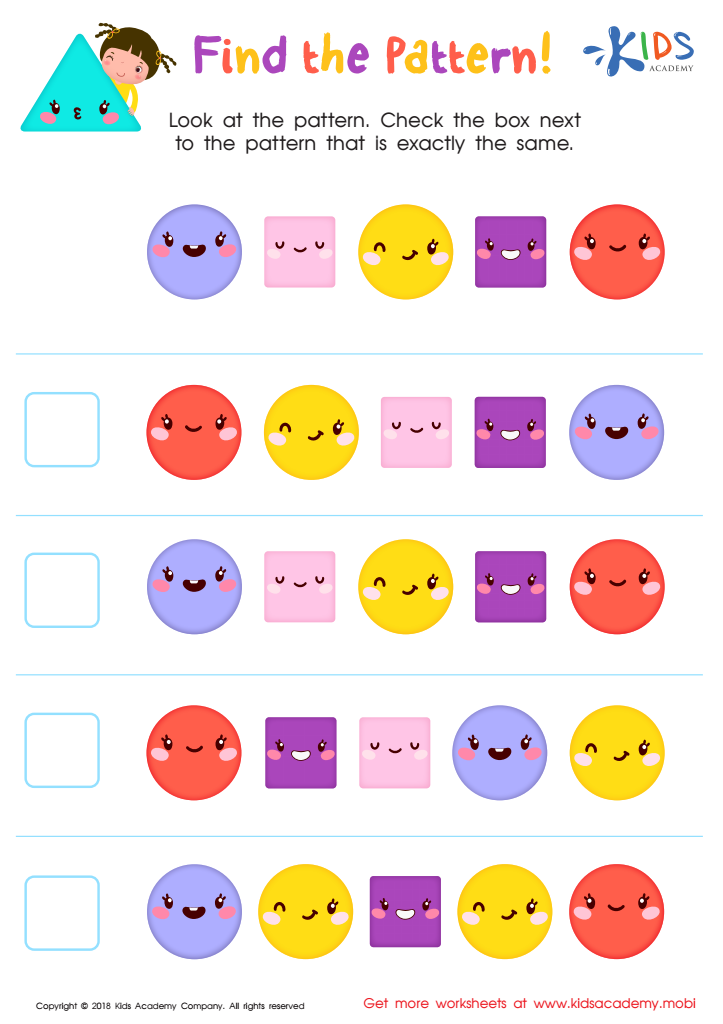

Find the Pattern Worksheet


Make the Same Pattern Worksheet
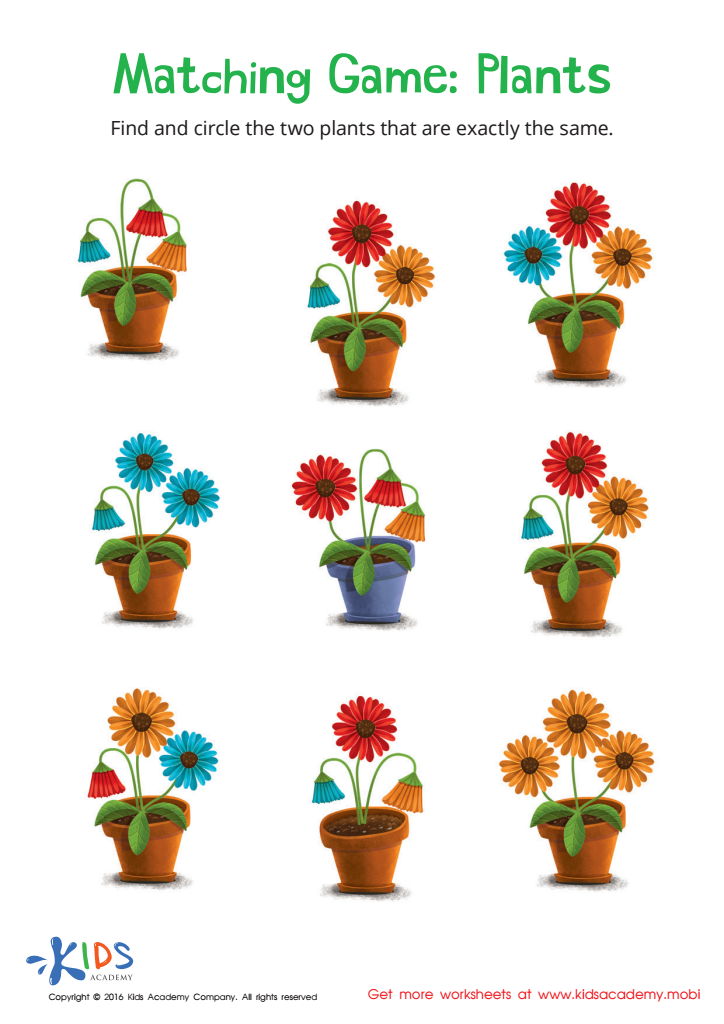

Matching: Plants Worksheet
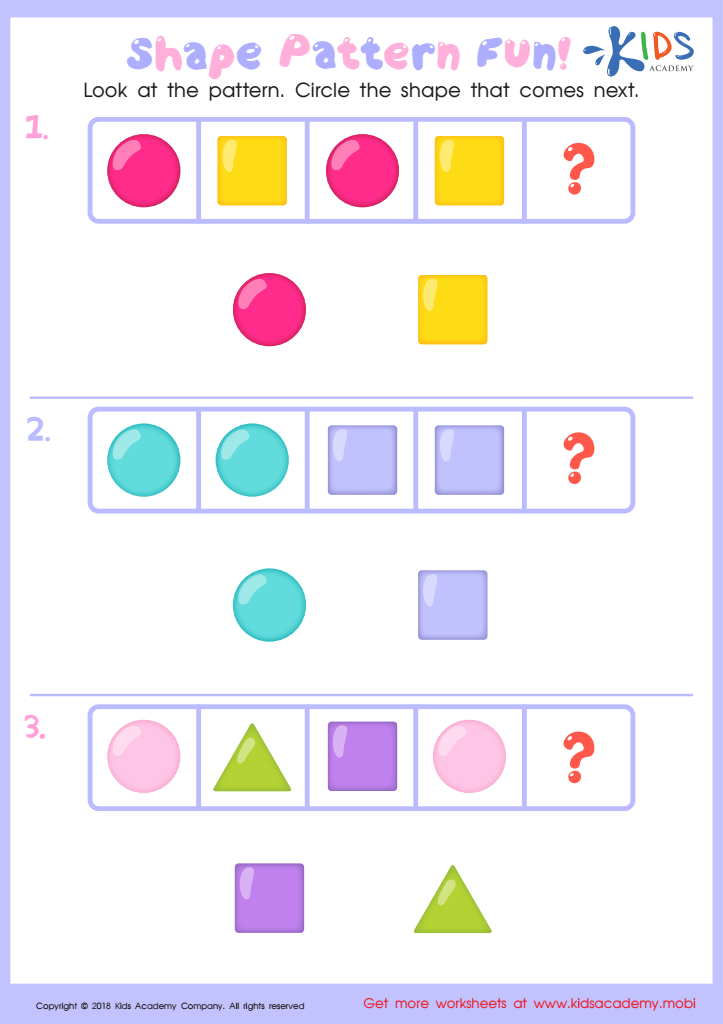

Shape Pattern Fun Worksheet
Understanding simple patterns is crucial for both parents and teachers as it forms the foundation of a child's cognitive and mathematical development. Patterns are everywhere in our daily lives, from natural sequences like seasons to structured formats in music and art. Recognizing and creating patterns fosters critical thinking skills and enhances problem-solving abilities.
When children learn to identify simple patterns, such as shapes, colors, or numbers, they develop logical reasoning skills that benefit other areas of learning. For instance, understanding patterns lays the groundwork for more complex concepts in mathematics, such as sequences, functions, and algebra.
Moreover, studies show that early exposure to pattern recognition contributes to a child's ability to understand mathematical concepts later on. It also promotes attention to detail and helps with memory retention as children start to anticipate repetition and structure.
By focusing on pattern recognition, parents and teachers can support children's overall cognitive development and provide engaging, hands-on learning experiences. These activities can boost confidence and readiness for more advanced mathematics, ultimately contributing to a stronger academic foundation. Thus, nurturing this skill should be a priority for anyone involved in a child's education.
 Assign to My Students
Assign to My Students
